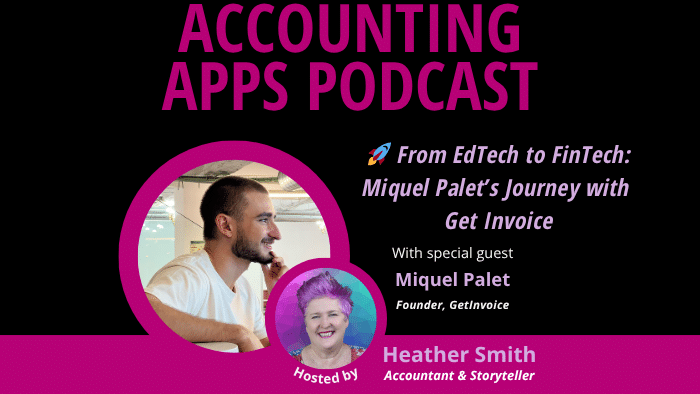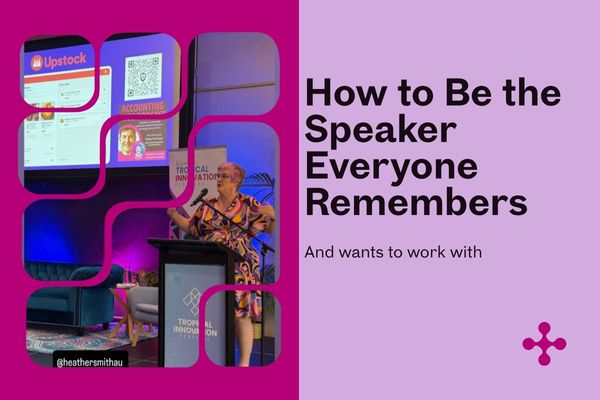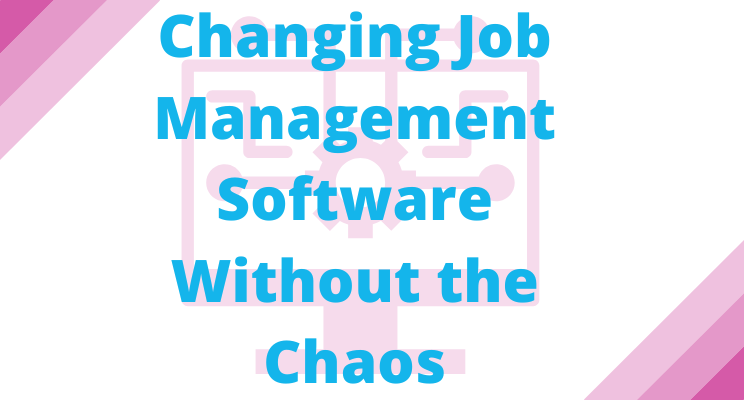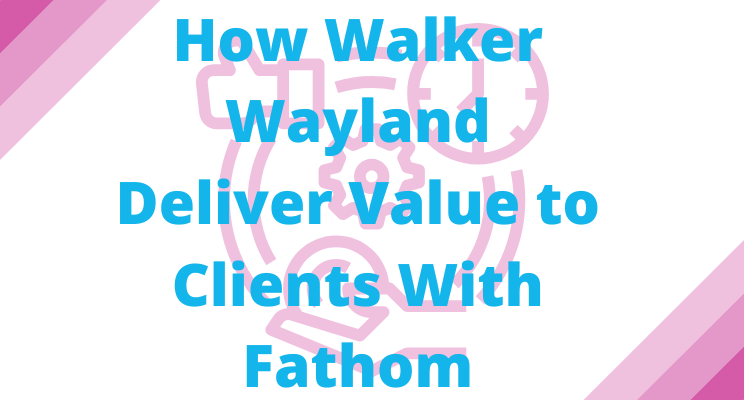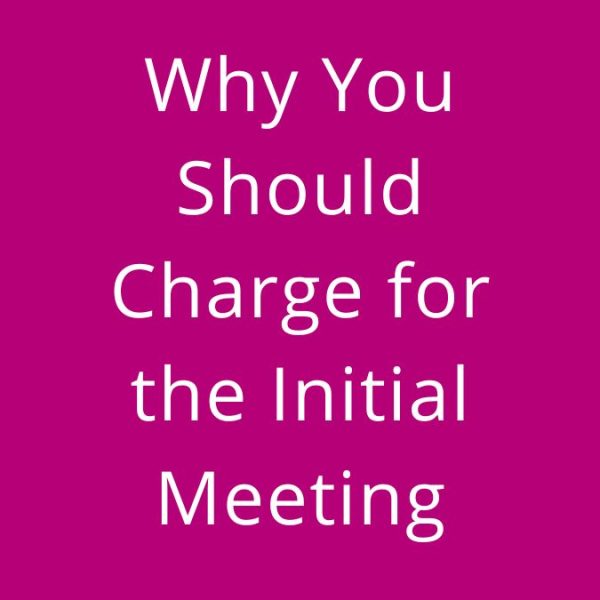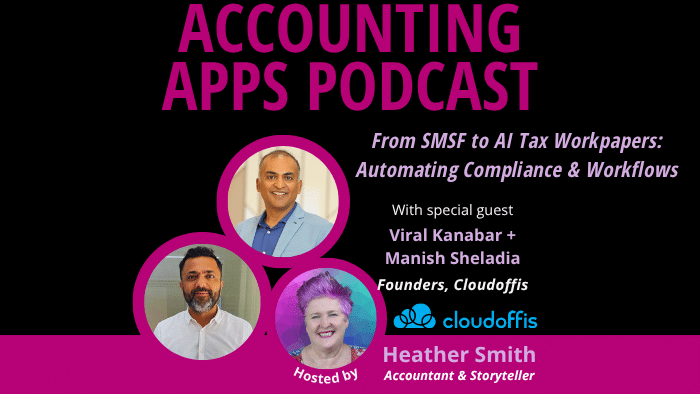We’re seeing the government actually provide FinTech banking charters in the US, which still it’s very early days on it. But our belief is that over time, we’ll actually be able to get something like a FinTech banking charter, which is actually something I believe is happening in Australia, where it’s much easier to actually get a digital banking licence. And I think the hope is that as businesses like our scale and become more mainstream, it’ll be much easier to manage and a better relationship with the government.
~ Yoseph West Founder and CEO of the Virtual Bank Relay
“Today I’m speaking with Yoseph West Founder and CEO of the Virtual Bank Relay
“In this episode, we talk about . . .
- The genesis of starting a virtual bank.
- What accountants and bookkeepers should expect from a modern future-focused virtual bank.
- The information the small business owner is interested in, that they understand, and where they are accessing it from
- The power accountants and bookkeepers have to influence SMB technology.
- Cybersecurity, both in terms of running a virtual bank, and the team working remotely during Covid19.
- What’s your favourite bank heist movie? For Yoseph it’s Baby Driver, for me it’s probably Ocean’s 8, with special mention to the King of Bank Heist movies – Michael Caine.
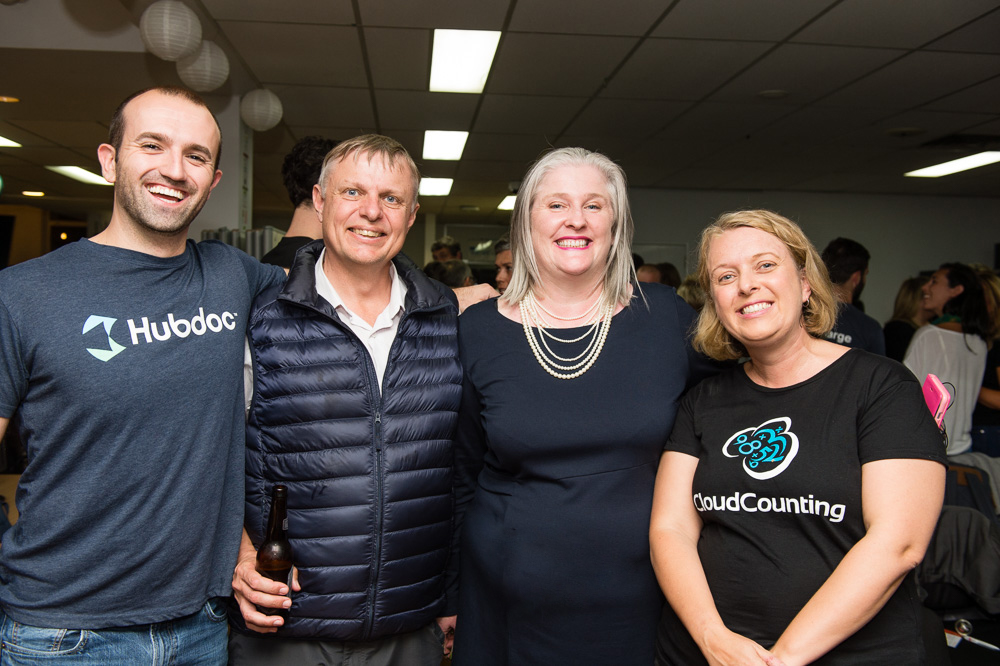
I’d like to start by asking you to share with us a story of an encounter with a unique Canadian animal, and it can be an animal of your choice.
Yoseph West: I love it. Well, thank you for having me, excited to be here and I love that question. So, a unique encounter. This was many years ago. I was as many Canadians do, we canoe. We go up North, we get in a canoe, we pack all our camping stuff and we portage, which means you go through one Lake and then you pick up all your stuff, put the canoe over your head, and then you go to the next Lake until you get your campground, and that’s where you camp.
And along the way, you get exposure to much of the great Canadian and wildlife that you would see. And so, I remember distinctly being on a Lake with my brother, and my dad. And I was maybe, I don’t know, 11, 12 years old. And we were maybe 10, 15 feet in a canoe, in water with a big Moose looking at us, and you’re like, “This is amazing, I’m so excited.” But I’m also worried that this thing’s going to charge us, but it was really majestic, and beautiful, and as peaceful, and it was just drinking water. So, I think that would be probably one of my better Canadiana stories.
Heather Smith: So, your parents managed to convince you at the age of 11 to carry a canoe on your head through wilderness.
Yoseph West: Yeah, I’m not sure exactly how that happened. I guess there was a lot of learnings on that trip for me.
Heather Smith: So, I’m Australian, as people will know, and I’ve lived in Canada for three years and I went on a hike on a reserve, and went around the corner and I had my son on my back in one of those backpack things that you have your children in. He was probably one and a half, and I came up and I was one metre away from a Moose. I went around the corner and there was a Moose same story, but I’m Australian, so I’m like, “Oh, beautiful Moose,” “Oh, should I be afraid of the Moose? I’m not sure if I should be afraid of the Moose, Moose is beautiful.” So, I just went through my head, “I don’t think Moose is dangerous.” But anyway, I live to tell the story. Apparently I should have been more worried than I was.
Yoseph West: Well, I mean, that’s probably the right attitude, as long as you didn’t try and touch the Moose and you stayed calm, you didn’t scare it at all.
Heather Smith: No, I just stood there. I was like, “Oh, Moose.”
Yoseph West: I’m in Canada.
Can you share with our listeners a bit about your background, where you started? I know you started in a company that you founded called Varu, If you could just run through a bit about your background.
Yoseph West: Yeah, absolutely. So, I’ve been working in FinTech for the better part of a decade now, started out of school. My background, I wanted to go and become a lawyer, speaking of learnings and realising things you don’t really enjoy doing, carrying a canoe probably one of them for me. And then, I went into school to become a lawyer and quickly realised that that was not the path that I wanted to go on. And so, ended up starting a company with a couple of friends, that was basically like a stock analysis platform. So, we plug in a stock ticker, we generate stock reports. And it managed to turn that business into an acquisition by a company called a Wave, here in Toronto. So, Wave is like a … They were called Wave Accounting at the time, I think they would now say they’re a full service, like financial services company for a small business. Definitely more focused on the micro, small business. And worked there for a period of time, basically helping them build out, yeah.
So, the accounting company bought a stock analysis platform?
Yoseph West: Yes.
Heather Smith: And did they use it?
Yoseph West: So, not really. They really bought the team, and they wanted us to build that functionality into the personal finance side of that product, because they were focused very much on micro, small business, zero to one employees. Where the finances are generally pretty mixed on the personal and business side in those cases, so that’s what they brought us in to do.
Heather Smith: Okay, that’s very interesting. Okay, so then you were at Wave and then from Wave, you went to?
Yoseph West: To Hubdoc, Yeah. So, I joined Hubdoc in, I guess, February 2014, as the third employee. And this was back when we didn’t know what Hubdoc was going to become, and we were trying to figure it out. There’s a lot of questions, perhaps not too many answers. And we just eventually did figure it out.
Heather Smith: So, that was Jamie, Jamie and Yoseph?
Yoseph West: Yeah.
Heather Smith: You were the third employee? Wow.
Yoseph West: Yeah, well I think …. No, I think there were a couple in between, so the Jamie founders and there were two Daves that were there. I don’t know what it was, I don’t know what was in the water. But there were two Jamies or two Daves, at one point there were two Phil’s. There was never another Yoseph, that was my great regret of my time at Hubdoc. I worked hard, I tried but no luck.
Yoseph West: Yeah, so I joined them, helped figure out, what was the value of our product and how do we help the accounting and bookkeeping community succeed in this new world? And Heather, when we launched this product, it was 2014, right? So we thought, “Oh, everyone’s on the cloud, we’re probably late. We are probably late, but let’s give this a go and let’s see what happens.” And then it turned out to just be a total ghost town.
Yoseph West: Sent out a lot of cold emails, and I would get responses back being like, “Hey, Yoseph, this sounds great, I can see how Hubdoc would save us so much time. But like what’s Deborah going to do? How is she going to spend her time?” And they’re like, “Okay, well, Deborah is going to retrain, she’s going to learn new skills and upskill and uplevel herself.”
Yoseph West: And so, yeah. Helped grow that business, built out a global marketing function. There across Toronto, Sydney, and London. And Hubdoc was eventually acquired by Xero. So, it was really great journey, lots of fun, worked with wonderful people and integrate outcome at the end of it all.
Heather Smith: It always seemed like an amazing team, I know that we met in 2016. So, I pulled out some images to throw in the blog post when I released it so people can go and have a look there. But it always seemed like you were having a lot of fun learning along the way.
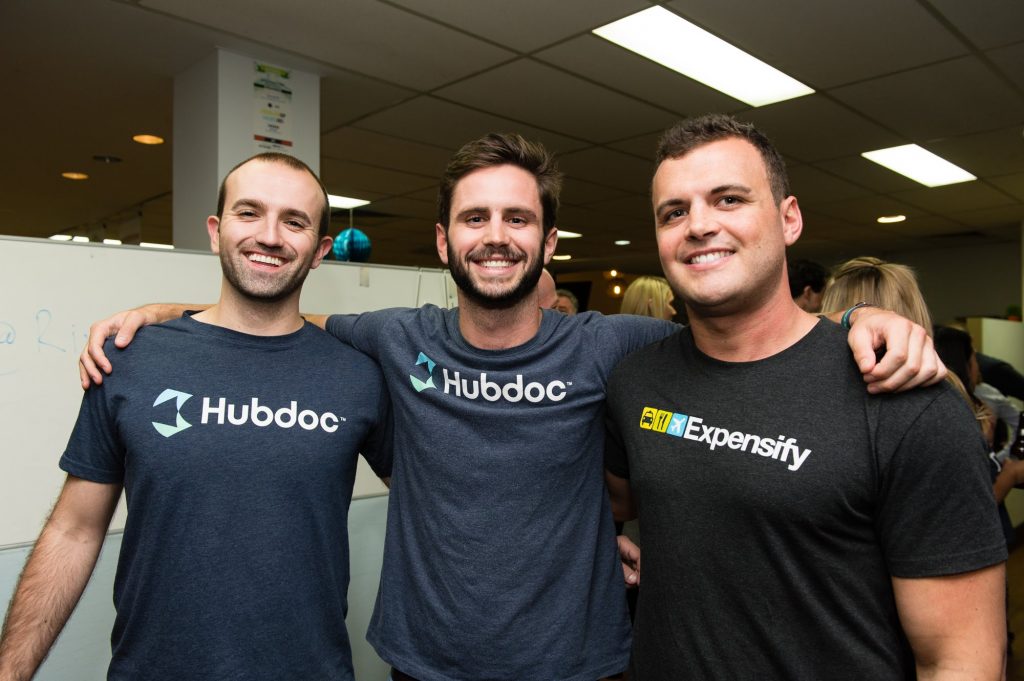
Yoseph West: Yep, absolutely.
Here we are today, and you are founder and CEO of Relay, which is described as a better, small business banking, built to streamline the back office. And you actually founded a Virtual Bank.
Yoseph West: Yeah, exactly.
Heather Smith: That’s amazing.
Yoseph West: Yeah, it’s really fun. We’re learning a lot, it’s growing really quickly, it’s all great. Do you want me to share the genesis?
Heather Smith: What brought you to this point? Yeah.
Yoseph West: Yeah, so I think when you’re starting something, you have to have a reason for what do you know about the world that perhaps is a missing piece, that not a lot of people will know? And the experience that we had at Hubdoc, was so unique because we got exposure to thousands of accounting and booking firms, and new tens of thousands of small businesses. And we saw the challenges that they face as it related to access to financial data. Hubdoc at its core is a central repository for small business financial documents, and we built Web scrapers. So, we’d go and download bank statements in PDFs, right? That was what we built, and accounts and bookkeepers would pay us anywhere from a few hundred dollars a month, to five, $10,000 a month, just to download this information.
Yoseph West: And then we got exposure to the challenges that the accounting platforms, general ledgers would have around getting the data in around bank feeds. And so, as we were thinking about, “Okay, what are the problems that are worth solving in this space?” Access to financial data felt like a really big pain point, quality of that data, once you get it in was typically quite poor. And I know how wonderful banks are in New Zealand, and Australia, but that is definitely not the case in North America. And so, when we thought about those problems and it’s like, “How do you actually attack it?” And the only way we thought we could do this properly was to attack it at a foundational level, and build a business bank from the ground up. And so, that’s what Relay is. So, it’s like your banking designed for growing businesses, you can collaborate with a user permission model. So, we actually set up accounts bookkeeping with their own partner portal. They can manage staff access, there’s no sharing bank logins. It’s really cool.
Yoseph West: You can manage all your bills from your bank account, so we’re actually the first bank in the world to integrate into Xero in QuickBooks online, to pull in unpaid bills, and you have financial controls baked in, and there’s no need for a clearing account either, which is really handy because we are the bank, we provide the bank feed. And so, it matches up against the bill.
Yoseph West: And then lastly, is they can manage all their business spending from their bank account. So, you can issue corporate cards, it’s really easy. And we do all of this in consent with a financial institution in the US called Evolve Bank & Trust. So, they’ve been around since 1925, they have half a billion dollars in assets, it’s through them that we’re able to offer FDIC Insured Accounts, up to $250,000. But anyways, that’s the genesis, it started with the accounting and bookkeeping community.
Heather Smith: That’s such an incredible and huge undertaking that you’ve achieved there, that’s certainly amazing. So, I have a few questions around that.
Where did the name Relay come from?
Yoseph West: This I’d say in the first six to nine months of starting this company, people would ask me, “What was the hardest part?” And the hardest part … No word of a lie, it was choosing the name, because in the US there are 5,000 banks, 5,000. So, any time you think, “Oh, this is a great name. Pilot, Pilot would be a great name or Beam, that’s going to be great.” There’re banks that have these good names.
Yoseph West: And so, it took us a while to find a potential bank name that was unique, and fit how we were thinking about banking. In our view is that banking should be deeply integrated, deeply connected into your core systems, and be able to relay information really quickly, and also the thought that we’re going to be able to offer pretty fast payments. And so, the idea of being able to … There’s something called a relay in electrician, where you relay the wires across. So, the thought was like, “Well, electricity moves quickly, money should move quickly.” That’s where it came from.
Heather Smith: Awesome, I was wondering whether it was that relay that you were relating to, and yeah, I imagine that’s quite difficult. So, you’re based in Toronto, Canada, you referenced North America. So, I have a few questions for you, you are based in Canada, how prevalent … I’m going to run through the questions and then you can answer.
How prevalent are cheques in Canada? Are the transactional charges in Canada based on cheques, or are on the EFT electronic funds transfer? And what jurisdictions or countries will your virtual bank operate or cover?
Yoseph West: Yeah, so today we purely service the US.
You are based in Toronto, but you’re servicing the US? Okay.
Yoseph West: Out of America, out of America, I like it. Yes, so we do have one US employee, but yeah, we entirely service the US. It was just easier to get started in the United States because of the level of competition there. And in terms of the pricing structure, we have no monthly fees, no minimum balances, all incoming payments are free. We do charge for domestic wires or international wires, but cheques today, we don’t charge for them. Cheques are definitely very prevalent.
Heather Smith: Yeah, In the US. Yes.
For us looking in from the outside, looking in at the USA’s banking system, we shake our head at the use of cheques. And I know that when I was back there in May 2019, someone gave me a cheque and it literally took me 20 minutes to actually get funds from this cheque. So, is that something that you’ll be tackling?
Yoseph West: I mean, I would love to say that we will eradicate cheques, I feel like that’s unlikely given how deeply embedded they are. But I think that there are things you can do, to make the process easier for people to use like electronic funds transfer. So, in the US it’s like ACH, is the network or the payment type. And so, inside of Relay, you can actually request payment details to someone who would like to pay, to say, “Hey, if you give me your account number and routing number, I can actually pay you via electronic funds transfer instead of having to write you a cheque.” So, these are things that we can do and functionality we can offer that can hopefully incentivise people to use electronic funds transfer.
Heather Smith: Yeah, so can I clarify the cheque processing is free, but the EFT or the Electronic Funds Transaction, I’m being charged for?
Yoseph West: Not ACH, which is the predominant method.
Heather Smith: Oh, okay. Okay. Well, that’s good to know.
One of the taglines for your business stood out for me was that, “Banking that makes bookkeeping easy, say hello to banking that has user permissions, direct bank feeds and enriched transaction data.” Why was creating a bank that offered these important to you?
Yoseph West: Yeah, so just working with the accounting and bookkeeping community, I know the pain points that they experience every day as it relates to banking. So, if we were looking at our economy today. We’re obviously in exceptionally unique times, I guess, as everyone says. But this is a small business recession. It truly is. And the challenge that every small business centre has, is actually making sense of their financial information. And so, our view is that the bank is really the nerve centre of it all. And it’s really been a silo for quite a long time and that makes it hard for small business owners to understand what’s happening. Let’s say I’m a small business owner, I guess I’m a small business owner, and I work with an accountant bookkeeper, and I’m relying on them to give me my monthly financials.
Yoseph West: Am I really looking at those financials to help me make financial decisions? Am I logging into my Xero account, am I my logging QuickBooks online account? I don’t think you are, I think what you’re doing is you’re looking at your bank balance. And you’re looking at it in a silo. And so, if you can allow data to freely move, and ensure that it’s high quality information, high resolution, then a business owner can make sense of it. You can actually provide an accurate financial picture for an entrepreneur and help them make smarter financial decisions, and help them become more successful. And so, that to me is like, I love accounts and bookkeepers, I love small business owners, I think these are some of the most dynamic people. And yeah, this just gets me up in the morning to help them in this way.
Heather Smith: I think that you’re right, that the business owner frequently looks at the bank balance and they say, “Why doesn’t my profit equal my bank balance?” That’s the question that we ask over and over again. And it’s like, “Yes, it’s different.” You clearly have a deep understanding of how the Xero platform and the QuickBooks online platform work and how your banking solution works.
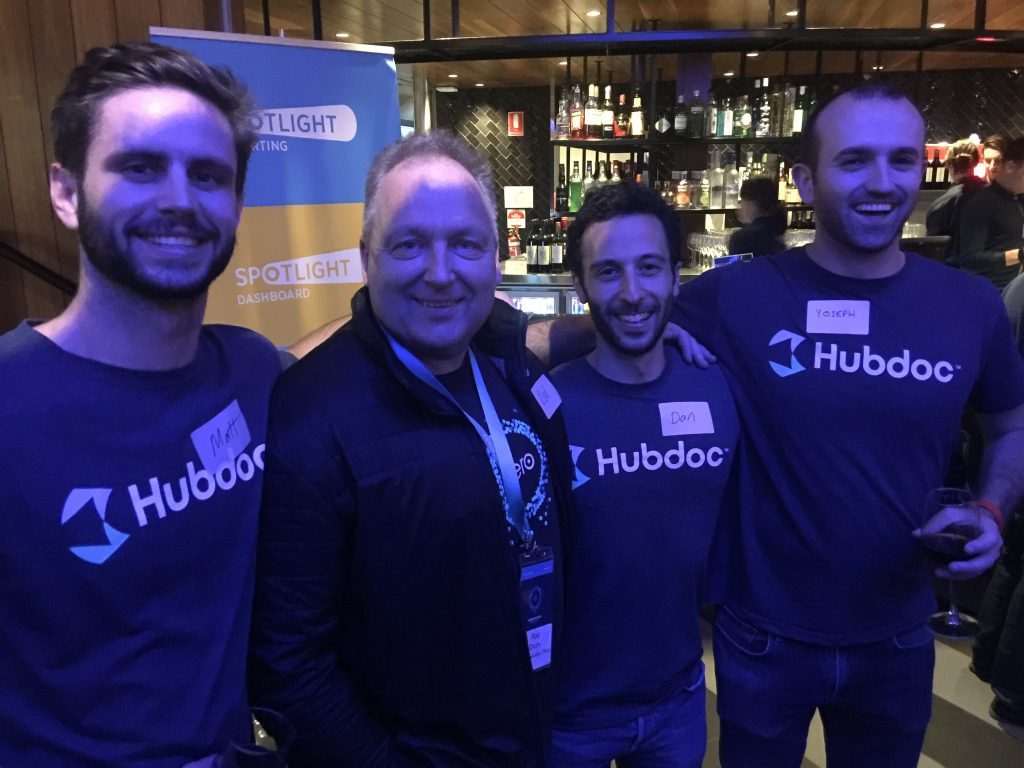
If you provide Xero and QuickBooks awesome data, top rate data. Why is the end user going to need to jump into your platform because they’ll see it all in Xero and QuickBooks?
Yoseph West: Well, I think there’s a couple of reasons there. So, one is … Yeah, I think you could argue this both ways to be perfectly honest with you. But I think the ease of use in terms of actually logging into your bank, when you log into Relay, it’s really, really straightforward, you understand what’s happening. I think when you log into an accounting platform, no matter how astute the business owner might be, it’s a lot of work to make sense of the information. So, if I’m trying to get a quick glance of like, “Hey, how am I doing? What’s happening? What decisions can I make today?” Hopefully, the bank account can deliver that, and then for deeper analysis, Xero and QuickBooks would be the better place to dig in.
Heather Smith: Yeah, no, it’s an ongoing challenge. And so, from you, from that perspective, it’s interesting to hear your perspective and your view of it. Because as accountants and bookkeepers we’re sometimes like, “Why are you restricting that information? Why have you made that information disappear in the accounting programme, but they’re doing it to make it, so it’s easier for the small business owner to deal with?”
How involved do you think an accountant and bookkeeper should be in advising their clients, what bank they should be working with?
Yoseph West: Well, obviously I think deeply is the answer. So, we uncovered this interesting stat about the number of small business owners that are actually adding or changing financial institutions. So, in 2019, it was 55% of them in US, changed or added a financial institution. That means that whether you like it or not in the next 12 to 24 months, the greater majority of your clients are actually going to change financial institutions. And that actually creates potentially a lot of work for you, it’s not a core point of influence for you today, potentially not. I’ve definitely met a lot of advisors who were doing this before we even got started, they’re like, “Hey, this is the bank that I work with, and I’m not touching any clients you don’t want to work with that bank.”
Yoseph West: And there are so many benefits for your firm when you can control this piece of the puzzle, because it is so deeply connected. It makes it easy for you to connect, Relay into your Gusto, like your payroll solution, to have high quality data going into your accounting system. You makes people far more efficient when you’re able to do that, so I think it’s actually such a core opportunity that then many firms are missing, but I think a lot more are catching onto.
Heather Smith: Yeah, it’s interesting to think of … It’s quite common for someone to say, “My tech stack is only working with QBO, I’m only working with Hubdoc.” And for them maybe to say, “I’m only working with this bank.” Yeah, that’s an interesting way to look at it, and I imagine that there are people out there … It’s not something I’d necessarily come across, but something obviously that you have come across.
Who is your ideal customer and what markets will your virtual bank serve?
Yoseph West: Yeah, so I think in terms of small business owners, where we focus is really on businesses between two and a 100 employees. So, really employer businesses in the heart of America, I would say that in terms of industry segment, it’s like pretty wide. We have churches, nonprofits, realtors, the list goes on. There are certain segments that definitely find Relay a better fit, so like eCommerce, consultants, professional services, as well as folks in real estate. So, like property managers, investors, realtors, they definitely find a lot of success with us. And then in terms of the geographic markets, we’re starting in the US, we’re hoping to go live in Canada. Our plan was Q4 of this year, but I think it’s going to be next year, just because of Coronavirus. But eventually I would hope that we can actually get Relay live in Australia and the UK. because I think that would make a tonne of sense.
Whereabouts do you physically store the money?
Yoseph West: So, the best part of doing this is that we don’t have to worry about that. So the money, is stored at Evolve Bank & Trust in Tennessee in the US, and they do what they’re great at, which is holding onto the money, making sure it’s safe, and it’s secure, and it’s FDIC insured. And we focus on what we’re great at, which is technology and software and delivering great customer experiences.
What are the challenges of running a virtual bank during COVID-19?
Yoseph West: I mean, what are the challenges? To be perfectly honest with you, it’s been keeping up with demand, that’s been the biggest thing. During this period of time, we didn’t know what to expect. I don’t think anyone did, but as it turns out that in a world where people are really fed up with the big banks, because of the mass around PPP loans, people not wanting to go to bank branches just in general, it’s really accelerated adoption of digital virtual banking solutions. So, that’s really been our focus, is providing support where we can. We had early on in this journey, we thought about, “Should we be processing PPP loan applications?”
Heather Smith: So, for listeners listening in the PPP loan applications, so the tax support provided by the government in the US, is that correct?
Yoseph West: Exactly, yeah. So, it was like subsidies for businesses that are struggling through this time, and where we landed was … We’re a newer company and we want to be good at what we’re good at. And in this time where it’s so critical for these businesses to get this money, do we really want to be learning how to process these applications and then pass them on to like a third party bank? It felt like the wrong choice, and so what we decided to do was very consistently recommend certain providers that were much better positioned to deliver for the small business owners, and decided the best way we could support was actually … We went through our customer list to be honest and we just called everyone and said, “Hey, we’re here, if you need any resources or the support, you want to connect to an accountant or book anything, let us know we’re here.”
Yoseph West: And for a lot of people, there were things we could help with, for other people it was just like, “Hey, it’s nice to talk to another human being, and thank you for being there, and thank you for being a support.” And so, I think that was a nice moment for the team and being able to support our customers in any way that we could.
Heather Smith: Excellent, yeah. Look, a number of people have said that the modern focused firms have been overwhelmingly supportive of them during this time, not necessarily about owning a business, but actually just simply going out and supporting them, which is what you seem to be suggesting that you’re doing.
Are you during this difficult financial time experiencing any trends that you didn’t expect, such as you’ve actually had an upturn in business? Are there any other things that you’re experiencing that would be of interest?
Yoseph West: I think in our case, we’ve seen the uplift in eCommerce too, to a pretty great extent that I think we’re all seeing across the board. And then, I would say real estate has just continued for the most part, it’s picking back up. That V-shaped recovery is definitely not lost in that arena. But other than that, I don’t think I have probably anything super insightful
With the ever increasing risk of cyber security, how are you navigating your team working remotely and cyber security across the bank, which you have touched on a couple of times?
Yoseph West: Yeah, absolutely. So, obviously we take security very seriously. So, we have a third party like Penetration Testing, that is done to ensure that we are fully secure. We actually all connect into our key systems through a VPN, to make sure that we’ve authenticated the person that’s connecting in. And then, outside of things like that, everything’s in the cloud for us. so, it’s all, Google Drive, it’s G Suite. It’s very easy to manage. The biggest area of focus for us is just making sure the team continues to feel connected, and so … This is the big change, Heather, I apologise for turning your question here. We’ve implemented a weekly happy hour where we played board games as a team, and it’s been really great, it’s been very nice.
Heather Smith: That’s a very Canadian thing to do though, isn’t it? Board games. I always remember when I lived in Canada, all these things happened in the basement of the houses because everyone was hiding in their basements during the Winter months. So, other things happen in other people’s basements in other countries, but in Canada it’s board games.
How involved should a virtual bank be with governments? And how involved should governments be with banks?
Yoseph West: That is a big question, that is a very big question. So, I think perhaps the thing that I can speak to a little bit, is this shift that we’re seeing towards regulatory friendliness towards FinTechs in general. So, we’re seeing the government actually provide FinTech banking charters in the US, which still it’s very early days on it. But our belief is that over time, we’ll actually be able to get something like a FinTech banking charter, which is actually something I believe is happening in Australia, where it’s much easier to actually get a digital banking licence. And I think the hope is that as businesses like our scale and become more mainstream, it’ll be much easier to manage and a better relationship with the government.
I’d like to circle back to something you mentioned right at the beginning, so maybe we can paint a picture of what the experience is like. You touched on that when the bookkeeper or the accountant is accessing their client’s information by your bank, they actually are provided with a portal. Maybe you can just briefly describe if, say a bookkeeper and accountant had 40 clients all working on or utilising your digital banking services, what it would look like for them.
Yoseph West: Yeah, absolutely. So, traditionally, you would probably have multiple bank logins, you’d have to go to multiple sites. Hopefully, you’re not holding onto your client’s bank logins, but that happens more than anyone likes to admit. And so, the difference with Relay is that you just log in using your login credentials, you’re able to see your full list of clients, you’d be able to switch between client accounts really easily, you’d be able to manage staff access to those clients’ accounts, and you’d be able to control the level of access that they have. So, you could say, “If you’re just doing bank reconciliation, you just have read-only access, and that’s it. If you’re managing their bills, we can give you that level of access, and there’ll be an audit trail anytime you’re touching money.” So, it’s pretty cool, you have controls one login and it’s so much easier than the alternative.
Heather Smith: Yeah, that sounds so refreshingly easier than a lot of people, we just don’t want to have access to their bank codes and many of them will try and give us their own personal ones. And we’re like, “No, no, no,” “Oh, what if you just texted me?” “Don’t text me that number, I don’t want it. I don’t want it.”
You’ve mentioned to me that accountants and bookkeepers have the power to influence small to medium business enterprise technology. What do you mean by this?
Yoseph West: Yeah, so I think there’s a couple of vectors that you can look at. So, one is standardisation of back office software, right? So, “Hey, I use Xero, I use Hubdoc, I use Gusto and these are the tools that I use to deliver my service. If you like my service, then we need to sign you up for these products,” right? So, I think that’s one angle to it. I think the other is that accounts and bookkeepers are such a core point of influence to the small business owner, in general, do you think small business owners care where they bank?
Heather Smith: I think they care about the interest and the convenience.
Yoseph West: Yeah, but yeah, does it matter to them that it’s at Wells Fargo, versus Chase, versus Bank of America? Probably not, there’s more apathy there than I think people recognise. And if my accountant or bookkeeper says, “Hey Yoseph, we’re going to be able to deliver better financial visibility for your business, and help your business grow faster because we’re using Relay, it’s we can deliver a real time financial disability through it.” Then I’m going to say, “Okay, great.” And I don’t have to pay the $25 a month, whatever fee that I’m getting charged for… It’s just such a no brainer when it comes from a core point of influence and such a trusted party to the small business.
What’s your favourite Bank Heist Movie?
Yoseph West: I’m trying to think about any of the heist movies that I’ve watched.
Heather Smith: Or should we ask, would you let Brad Pitt, George Clooney, Julia Roberts, Matt Damon, be customers?
Yoseph West: You know what I really enjoyed, I watched a Baby Driver, maybe in the last year and I thought it was just such a great movie, really fun, but well put together.
Heather Smith: Yeah, that had a lot of positive reviews. I don’t think I’ve watched it yet, but yes, it did have a lot of positive reviews. About a young actor on it, who was the driver. The Baby Driver, but I can’t call this man.
What does the next five years hold for you?
Yoseph West: Well, hopefully, we’ll be able to grow Relay into a really big business, and we’ll be serving … I would hope by five years, more than a 100,000 small businesses, I think that’d be really exciting. And I think the view overall is like, “What if you built a bank that actually solved problems around core areas of the back office?” We talked about being the first bank in the world to integrate into Xero and QuickBooks online, to pull in and pay bills. What if we built revenue integrations, or helped you manage your expenses, and did it all in a bundle for the bank? Would that help increase financial visibility, and help automate that part of your business that most small business owners don’t really want to deal with? And advisors want to take away the administrative work, so that they can focus on delivering high value advice. I think that’s just is really compelling and exciting.
Heather Smith: Yeah, and improve cashflow massively, which is what we’re always trying to do, and just sometimes those small triggers, like what you’re doing is actually massive. But sometimes those small triggers in different areas can make that cash flow so much more fluid for the small business owner, and make life much easier for them. So, thank you for spending time with us here on Cloud Stories, we’ve really appreciated it.
Is there anything else you’d like to share with our listeners? And how can they get in touch with you?
Yoseph West: Absolutely, so number one, thank you so much for having me. This was really fun, I loved the beginning, especially that kind of went through my head like, “What are the questions Heather might ask me?” That was definitely not one of them, so that was awesome. And yeah, we’re super reachable, you can check us out relyfi.com. We have a dedicated area for accounts and bookkeepers. If you’d like to reach out to me, I’d love to hear from you. My email address is yoseph@relayfi.com. Yeah, I think that’s it.
Heather Smith: Awesome, thank you so much.





